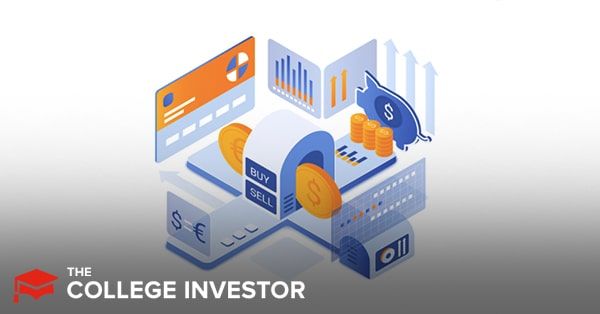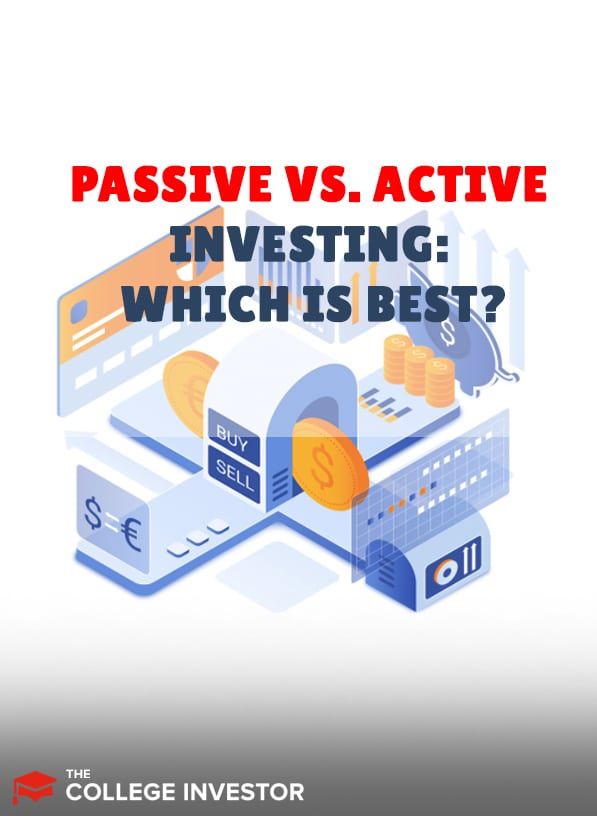
Which is better, active or passive investing? Anyone remotely familiar with the investment community will know that there is a constant debate raging over this particular topic. And this. debate has intensified over the last few years.
In reality, the best type of investing will depend on your investment goals.
With that in mind, let’s take a closer look at the nitty-gritty details of passive versus active investing. Once you have the information you need, you can decide for yourself which is a better fit for your portfolio.
Passive vs. Active Investing
First things first, it's important to understand what the terms passive investing and active investing actually mean. Let’s get started with the basics.
What Is Passive Investing?
Passive investing is associated with a hands-off approach. As a passive investor, you're likely investing for the long term. With that, you may not be interested in making regular trades to achieve short-term gains. Likewise, you aren’t trying to beat the market with sophisticated investment strategies that require constant portfolio updates.
Instead, passive investors want to set up their investments and let the market take care of the rest. They usually investing in index funds that track particular market benchmarks. Essentially, passive investors are sticking to the idea that time in the market is better than timing the market.
Of course, that doesn’t mean that passive investors completely ignore their portfolios. In fact, regular portfolio rebalancing is an important part of any passive investment strategy. However, passive investors will likely check in their portfolio on a minimal basis of once a quarter or less.
What Is Active Investing?
Active investing involves a more hands-on approach. With an active investment strategy, an investor or their money manager watches the market constantly. As the market fluctuates, the investor looks for opportunities to improve their portfolio.
Typically, active investors are concerned with short-term gains. An active investment strategy involves a considerable amount of time and research in an effort to out-perform the market.
Unfortunately for active investors, the vast majority are unable to out-perform the market. In fact, over 75% of actively managed funds failed to beat the market over a five-year period, according to S&P Dow Jones Indices. And that number gets even worse with time: at 10 years, 85% are failing to beat the index, and at 15 years, 92% fail to beat the index...
Active vs. Passive Investing: Pros And Cons
Each investment strategy comes with pros and cons. Here’s a closer look at the advantages and disadvantages of these investment styles.
Pros Of Passive Investing
Passive investing has several advantages including:
Cons Of Passive Investing
As with all financial strategies, there are some drawbacks to consider with passive investing. These include:
Pros Of Active Investing
There are a few potential advantages of active investing. These include:
Cons Of Active Investing
As with all financial strategies, there are some drawbacks to consider with active investing. These include:
Passive vs. Active Investing: Which Is Best For You?
Both passive investing and active investing can be appropriate strategies for investors. However, you’ll need to decide for yourself which is the right option for you.
If you want to take a hands-off approach to investing, then a passive style is the better choice. You can expect reasonable returns that are consistent with market averages over the long term. Additionally, you can ensure that you aren’t overpaying for mutual funds or ETFs.
On the other hand, if you want to create a personalized investment experience and have the time to commit to this strategy, then active investing might be right for you. Investors with a short-term mindset could also benefit from an active approach.
Before you dive into an active approach to investing, take some time to learn the basics. Without a basic understanding of the stock market, it's better to stick to a passive approach until you have enough time to commit to learning this skill.
Final Thoughts
As an investor, a passive or active style may be best suited to your needs. Importantly, neither type of investing is outright better than the other. However, each strategy will serve the needs of a particular type of investor better.
Before you decide which one is best for you, take some time to consider your investment goals. Need some help deciding which investment strategy is right for you? Take a look at our ultimate investment strategies guide.

Robert Farrington is America’s Millennial Money Expert® and America’s Student Loan Debt Expert™, and the founder of The College Investor, a personal finance site dedicated to helping millennials escape student loan debt to start investing and building wealth for the future. You can learn more about him on the About Page or on his personal site RobertFarrington.com.
He regularly writes about investing, student loan debt, and general personal finance topics geared toward anyone wanting to earn more, get out of debt, and start building wealth for the future.
He has been quoted in major publications, including the New York Times, Wall Street Journal, Washington Post, ABC, NBC, Today, and more. He is also a regular contributor to Forbes.
Editor: Clint Proctor Reviewed by: Chris Muller
